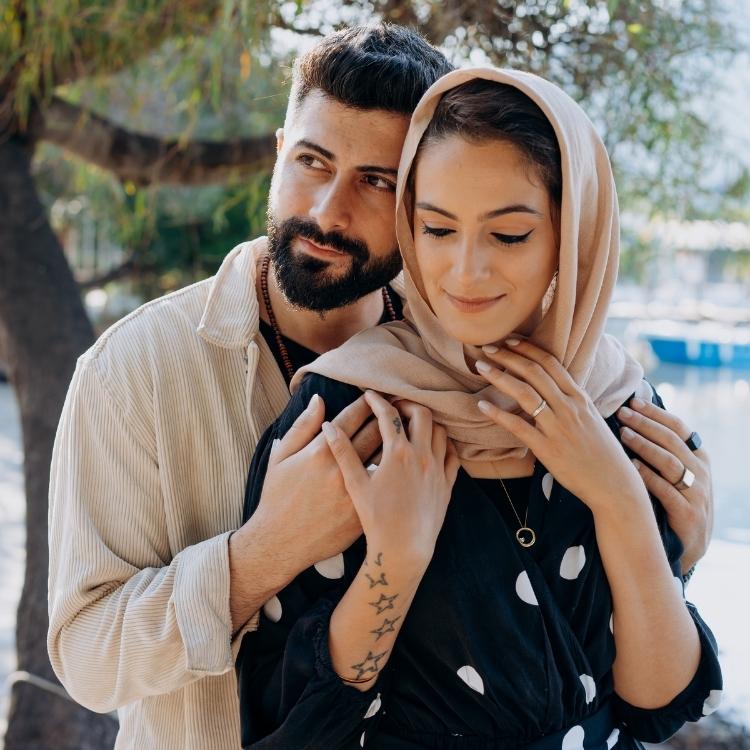
They say you should marry your best friend—the person you have the most fun with, the first to know when something exciting or miserable happens, the one who never judges you for being you, and arguably the only person who knows everything about you—for better or for worse.
When you reach *almost* married status, you likely (hopefully) know everything about your partner, but of course, there are some (big and small) things that are really important to truly understand and consider before embarking on the big M. After all, getting married is one of the biggest decisions you might ever make, and you want to make sure that the person you are choosing to spend the rest of your life with is someone you are absolutely sure will be the best person for you.
Now, of course, there are little things that you will learn about your partner in the years ahead that will keep your relationship fun and exciting, but before you walk down the aisle, here is what to know about your partner before marriage:
Love language
If you are not familiar with why you need to know your partner’s love language or what a love language even is, now is the time to dig in. Essentially, this idea comes from Dr. Gary Chapman’s #1 New York Times Bestseller The Five Love Languages: The Secret to Love that Lasts, and it explains the psychology behind the five different ways individuals give and receive love. The five ways are as follows: Acts of Service, Words of Affirmation, Quality Time, Gift Giving, and Physical Touch.
Sometimes, we do things out of love (like making dinner on a night your partner is busy with work or buying gifts on a whim for them), and these gestures aren’t received as well as we want them to be. This could be because your partner might need to be shown love a different way (like telling them you’re proud of them or carving out extra time to spend together). Instead of getting upset that your original gesture wasn’t that big of a deal to them, you are better equipped to avoid that disappointment and show them love in the way they prefer to receive it.
My recommendation: Learn about these together, identify where you both land, and talk about how you both like to show and receive love. Odds are, you will see your partner and their actions from a different perspective (in a positive way!), know more about how to keep the spark alive, and avoid conflict in the future.

Source: Good Faces | Pexels
Good (and bad) traits
Of course you love the heck out of your partner, but do you love them not despite their faults but because of them? It’s easy to ignore bad traits when there are so many good ones—we all know this, but before you get married, recognizing, understanding, and accepting their not-so-good traits are crucial.
It’s not uncommon for couples to get married and hope that the things they don’t necessarily love about each other will magically go away, but don’t be that couple. For better or for worse, remember? You should be able to talk about your flaws and allow your partner to talk about theirs in a non-judgmental and accepting environment. That way, when something comes up, you can work to improve each other’s not-so-good traits together, which in turn will strengthen your relationship in the long run.
Thoughts on kids
While you might not be ready just yet to have kiddos running around (or more of them if you and/or your partner already have children), this is arguably one of the most crucial topics to discuss before choosing to spend your life with someone. First and foremost, are you on the same page when it comes to whether you want them or not? What about timing? Maybe you are ready now and your partner wants to wait a few years. This can cause some conflict, and it can be hard to compromise on something this big.
Similarly, you should know how your partner feels about things like IVF, egg freezing, and adoption if having children together is more difficult. Have a conversation about all aspects of bringing children into the world: if you want them, when you would want them, and finally, how they would affect your future, finances, and relationship. Considering what to know about your partner before marriage is a big one, so we don’t recommend saving it for down the road.
Financial goals
It’s no surprise that talking about (and managing) finances is uncomfortable for many couples, especially if one of you either makes more money or has more debt than the other. In fact, most couples have experienced some sort of conflict due to finances. It is a vulnerable subject for a lot of individuals, but it can also be empowering and exciting to have conversations about financial goals with your partner.
Income and debt aside (since you likely already know these things about your partner), ask your partner how you will handle finances after you get married. Will you combine finances or keep them separate? Does either one make you uncomfortable? Find out why that is. Similarly, you should have an understanding of how they like to save their money (in big amounts for a trip or for little things that are more frequent) and how you will save money together for future goals.
Finally, while it can be incredibly uncomfortable to discuss: Is a prenup necessary for financial well-being going forward? Answering these questions with your partner (and maybe a financial planner) before marriage, even though they aren’t the most fun, will make you feel more prepared in long run.

Source: Mikhail Nilov | Pexels
Career Goals
Whether you waited to have an established career before getting married or you still aren’t quite sure what you want to do, your career, as well as your partners, will play a key role in your future together. Usually, we spend more hours a week at work than we do with our partners, so it’s not unlikely for work to be a recurring topic of conversation at home. With that said, our careers can take our lives in many different directions depending on our career goals. You should know before walking down the aisle what that means for your marriage.
For example, how will you support your partner during stressful work situations or big career decisions? If their job asked them to relocate, are you going to be OK with that? What about vice versa? And finally, whose career would take the backseat if it ever came down to that? These are very difficult questions to answer (especially hypothetically), but you’ll want to make sure that you are on the same page about them.
Thoughts on couples counseling
Another not-so-fun yet essential question to ask your partner (and know about yourself) is how they feel about couples counseling. Couples counseling is becoming more and more common even before conflict arises. It’s a great way to avoid miscommunication and strengthen a relationship, but unfortunately, counseling in general still has a stigma around it. Sigh.
What does your partner think about couples counseling—not just for other relationships but for yours? Are they open to it or is it “not for them?” If this is something that is important to you (or them) and you disagree on it, you should find out why and how you will otherwise strengthen your communication or handle conflict as it arises.
